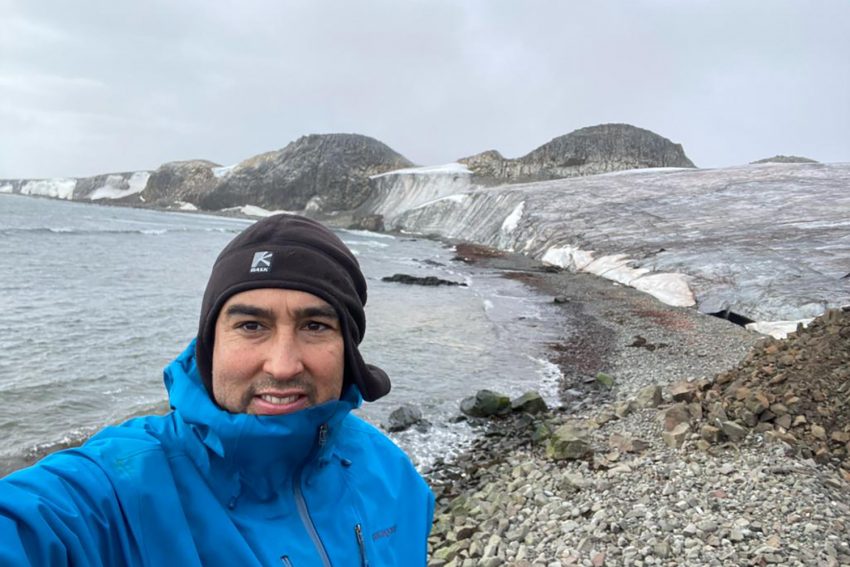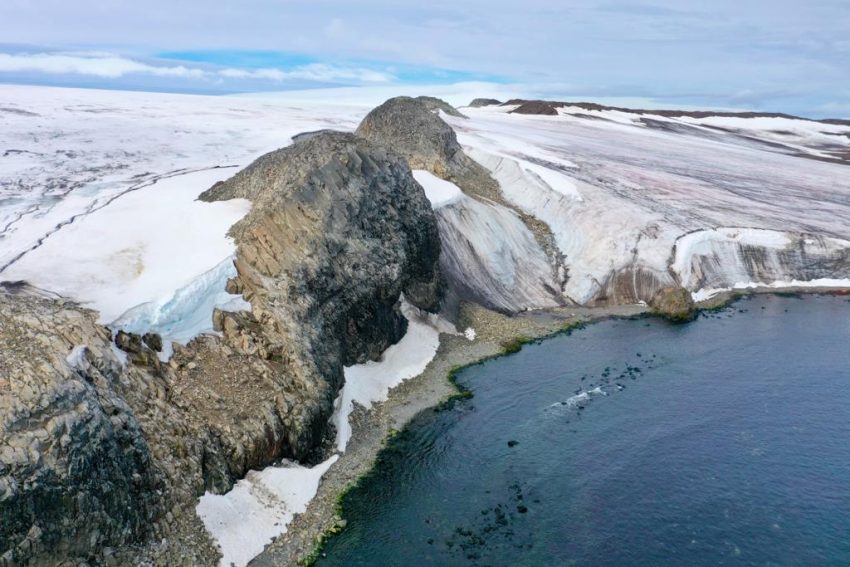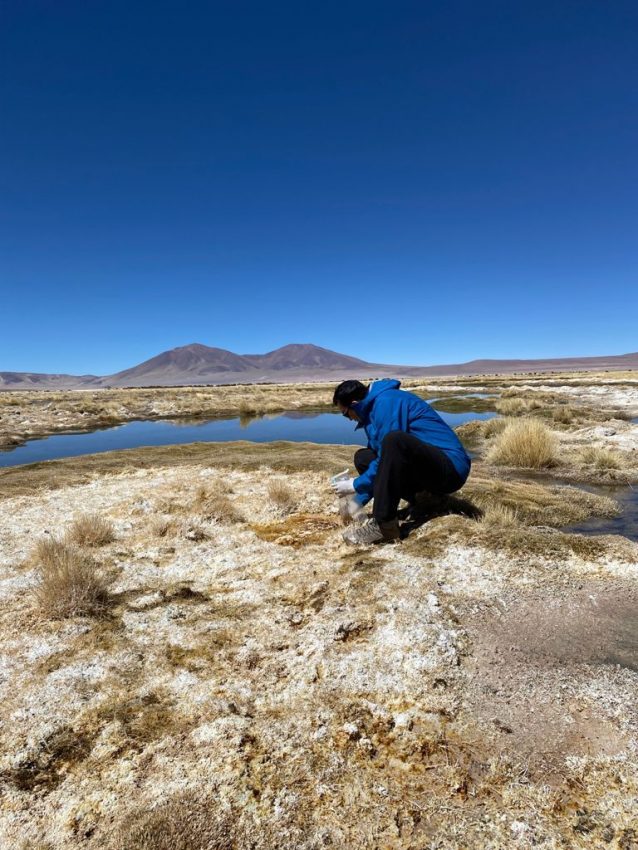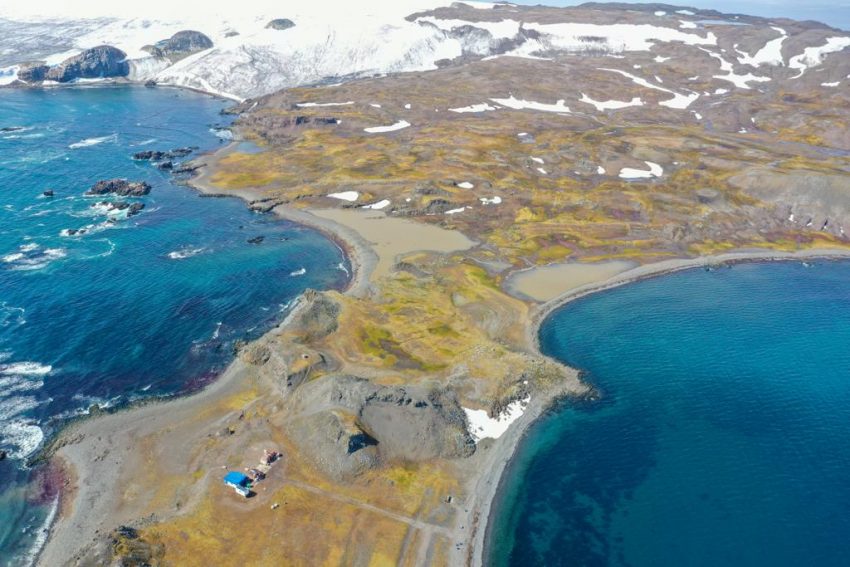International graduate school planned with Chile Joint research into the degradation of crude oil by bacteria
A long-standing research relationship is bearing fruit. The scientific exchange and cooperation between TU Braunschweig and the Universidad de Chile in Santiago de Chile is to be intensified through a joint graduate school on extremely adaptable bacteria that can degrade petroleum residues. To this end, Dr Ignacio Poblete, Associate Professor of Bioprocess Engineering from Santiago de Chile, visited the Braunschweig Centre for Systems Biology (BRICS) as a guest scientist.

Ignacio Poblete is researching extremely adaptable bacteria that can break down petroleum residues together with scientists from Braunschweig. Photo credit: Ignacio Poblete
Ignacio Poblete already knows Braunschweig very well: he was a researcher here from 2008 to 2012. In 2012, he completed his PhD in systems biology at the Helmholtz Centre for Infection Research (HZI) and TU Braunschweig. He then worked as a postdoc at the Institute of Bioprocess Engineering at TU Braunschweig. Ignacio Poblete is now Professor of Chemical and Bioprocess Engineering at the University of Santiago de Chile. He heads the Biosystems Engineering Lab, which specialises in the development of microbial systems for the production of industrial chemicals and the bioremediation of persistent and toxic compounds using microorganisms.
Extremophilic bacteria as a common basis for research

Antarctica is home to bacteria known as extremophiles, which have adapted to the extreme environmental conditions. Photo credit: Ignacio Poblete
Since completing his doctorate in Braunschweig, Ignacio Poblete has maintained contact with scientists at the TU Braunschweig and there has been a collaboration between his laboratory and the Institute of Microbiology at BRICS for several years. The common research background is bacteria that live in extreme locations, the so-called extremophiles. These microorganisms have adapted to extreme environmental conditions that are considered hostile to other organisms. Due to the country’s location, such bacteria can be found in Chile: The South American country stretches 4275 kilometres from north to south along the Andes and the Pacific Ocean. In addition to the high mountains, northern Chile is home to the Atacama Desert, one of the driest regions in the world. To the south-east of Chile lies the Chilean Antarctic Territory, a part of Antarctica claimed by Chile but not recognised internationally.
Extremophiles degrade petroleum residues in ice

Sampling in the Atacama Desert in northern Chile, one of the driest regions in the world. Photo credit: Ignacio Poblete
Both in the hostile Atacama Desert and in Antarctica, researchers can obtain bacterial isolates on site. Together with scientists from the German Collection of Microorganisms and Cell Cultures (DSMZ), the German and Chilean scientists Dr Rebekka Biedendieck from the TU Institute of Microbiology and Prof Ignacio Poblete have already been able to characterise a new Antarctic bacterial species that produces biopolymers, carotenoids and antioxidants. Due to the high level of environmental pollution in Antarctica, the bacteria living there have another extreme adaptation: some of the Antarctic extremophiles degrade petroleum residues from the ice. “Making use of this biological degradation is one of the aims of the joint research on the bacteria,” says Ignacio Poblete, who provided information on this and on the production of biopolymers during his visit to TU Braunschweig. He also enriched the teaching programme with two lectures on biotechnology.
Planning a German-Chilean Graduate School

The Chilean Antarctic Territory is located south-east of Chile. Here, German and Chilean scientists have already been able to characterise a new Antarctic bacterial species. Photo credit: Ignacio Poblete
The idea of establishing a joint graduate school between TU Braunschweig and the DSMZ with the University of Santiago de Chile arose from their common research interests. One of the main reasons for his visit was to further plan the concept together. The graduate school will focus on microbial ecosystems of extreme locations and molecular biology, e.g. proteases, i.e. proteolytic enzymes, in extremophiles (isolates from the Atacama Desert and Antarctica). The German and Chilean PhD students at the Graduate School will work on different aspects of the same bacterium and will each spend a research year in Chile and Germany, learning the respective languages. In addition, a joint retreat for the doctoral students is planned once or twice a year.
The German-Chilean research team, which has already published several joint research results, is now in the process of planning and preparing an application for funding from the International Graduate School.
